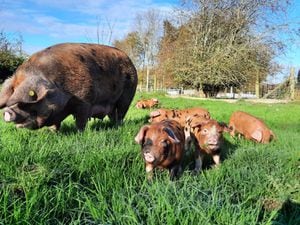Only way is up for vertical farming
Vertical farms with their soil-free, computer-controlled environments may sound like sci-fi.

But there is a growing environmental and economic case for them, according to new research laying out radical ways of putting food on our plates.
The interdisciplinary study combining biology and engineering sets down steps towards accelerating the growth of this branch of precision agriculture, including the use of aeroponics which uses nutrient-enriched aerosols in place of soil.
Carried out by the John Innes Centre, the University of Bristol and the aeroponic technology provider LettUs Grow, the study identifies future research areas needed to accelerate the sustainable growth of vertical farming using aeroponic systems.
By bringing fundamental biological insights into the context of the physics of growing plants in an aerosol, we can help the vertical farming business become more productive more quickly, while producing healthier food with less environmental impact.
Vertical farming is a type of indoor agriculture where crops are cultivated in stacked systems with water, lighting and nutrient sources carefully controlled.
It is part of a rapidly growing sector supported by artificial intelligence in which machines are taught to manage day to day horticultural tasks.
Dr Antony Dodd is a group leader at the John Innes Centre and was senior author of the study





